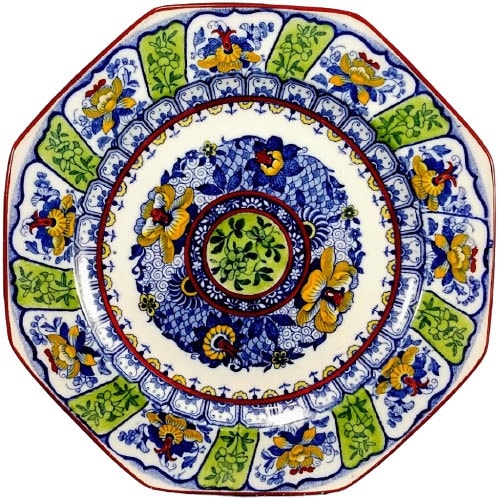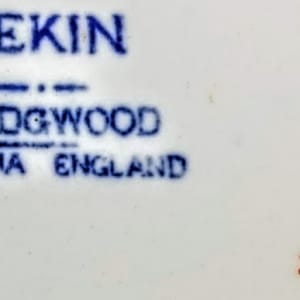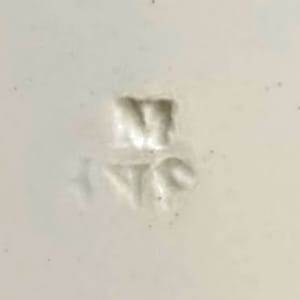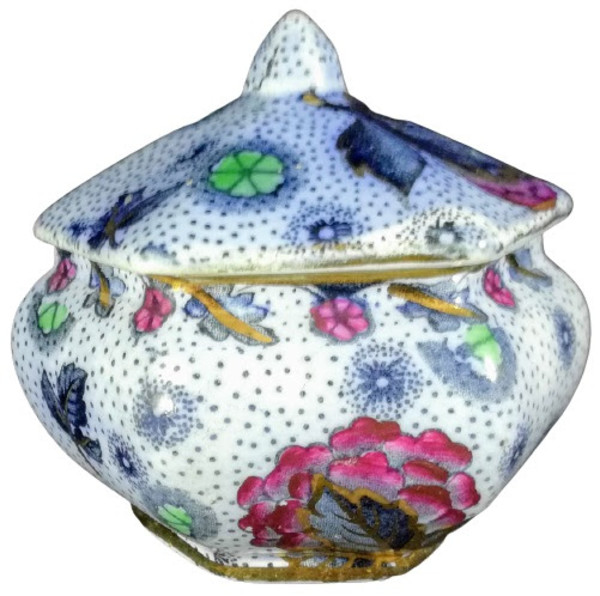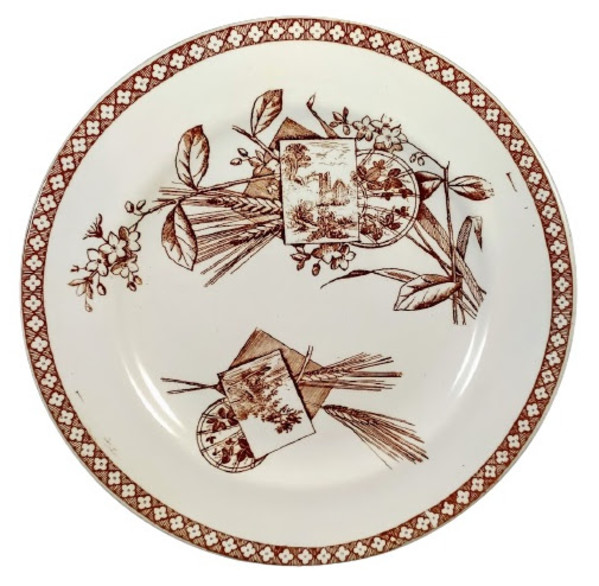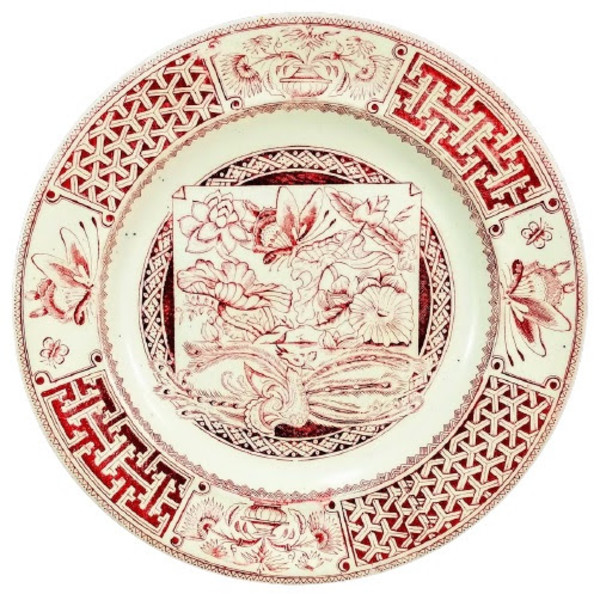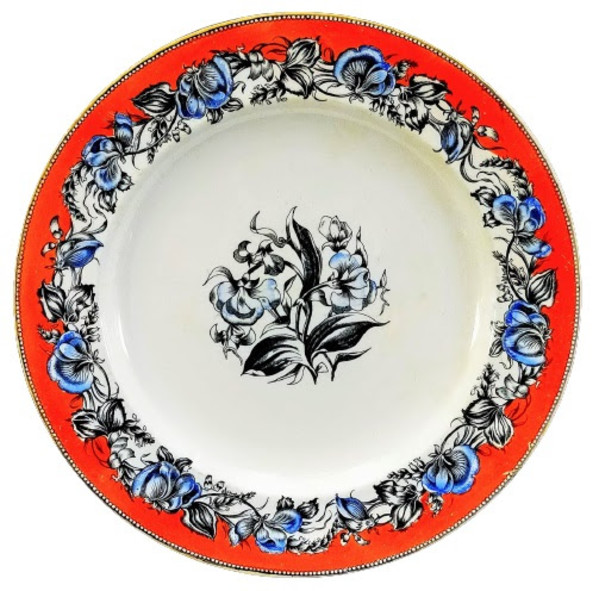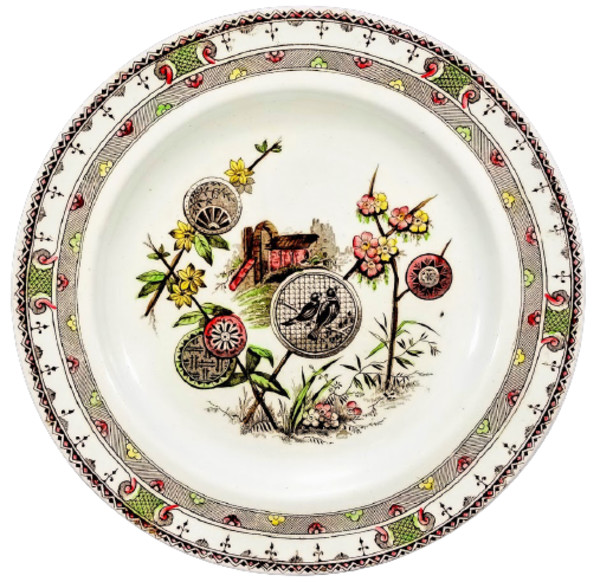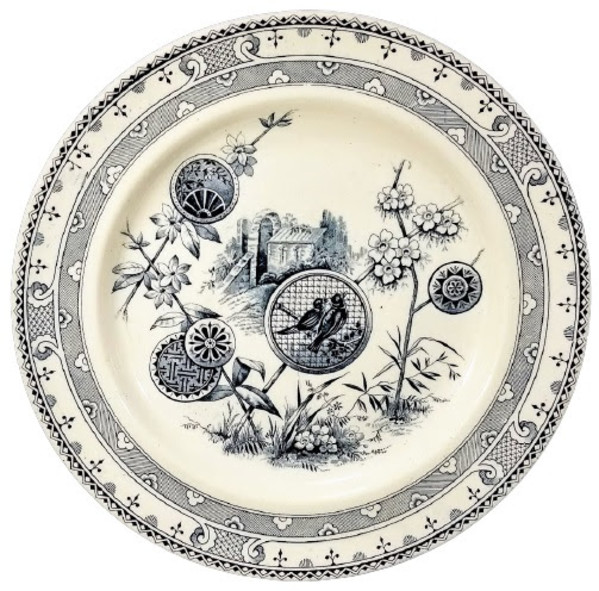- Josiah Wedgwood
- Pekin, c. 1907-1923
- Earthenware
- 8.125 x 8.125 in (20.64 x 20.64 cm)
-
Not For Sale
Plate, 8.125 inches diameter. Blue transfer with polychrome clobbering. Printed and impressed maker's marks for Josiah Wedgwood. Red painted pattern number "C3623" The impressed letter code indicates a manufacture date between 1907 and 1923. This pattern seems to draw inspiration from the designs on Chinese pottery, which was very popular in 19th-century England. Here the central image appears in a circle and is composed of flowers like dahlia and waterlily in the stylized Asian style paired with repeated spiral and wave geometric patterns. The wide border is composed of panels of the same flowers alternating with panels of simple, graphic flowers.
Josiah Wedgwood was born in Burslem, Staffordshire, on July 12, 1730, into a family with a long tradition as potters. At the age of nine, after the death of his father, he worked in his family's pottery. In 1759 he set up his own pottery works in Burslem. There he produced a highly durable cream-colored earthenware that so pleased Queen Charlotte that in 1762 she appointed him royal supplier of dinnerware. From the public sale of Queen's Ware, as it came to be known, Wedgwood was able, in 1768, to build near Stoke-on-Trent a village, which he named Etruria, and a second factory equipped with tools and ovens of his own design. At first only ornamental pottery was made in Etruria, but by 1773 Wedgwood had concentrated all his production facilities there. During his long career Wedgwood developed revolutionary ceramic materials, notably basalt and jasperware. After Wedgwood's death in Etruria on January 3, 1795, his descendants carried on the business, which still produces many of his designs.
- Subject Matter: Aesthetic (Japonesque)
- Collections: Aesthetic Transferware, Josiah Wedgwood
